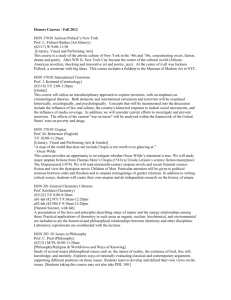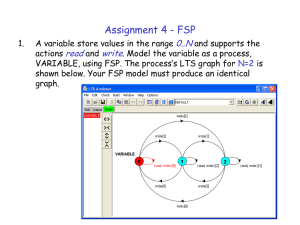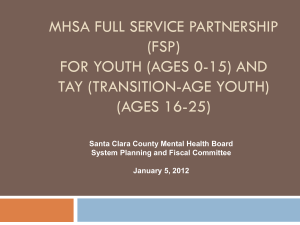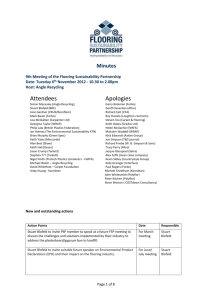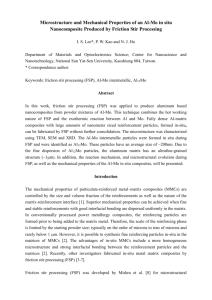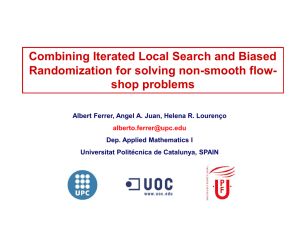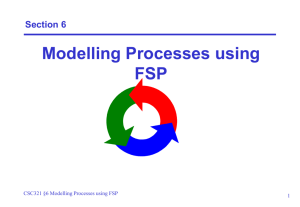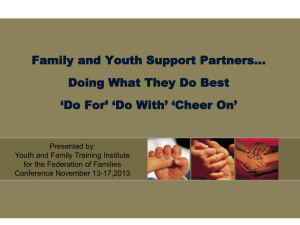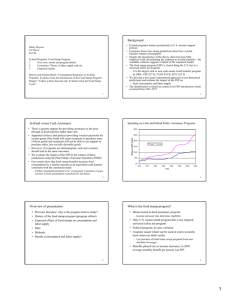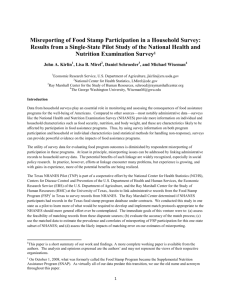Family Solutions Program (FSP) A multiple family group prevention
advertisement
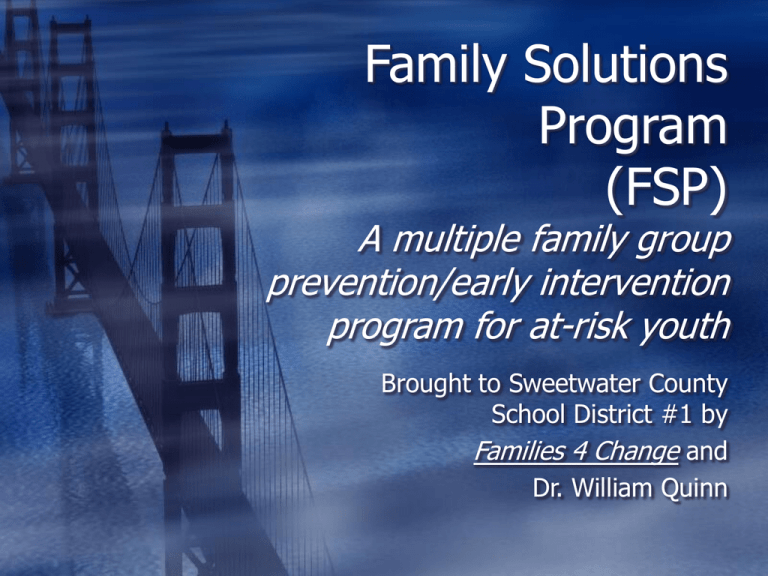
Family Solutions Program (FSP) A multiple family group prevention/early intervention program for at-risk youth Brought to Sweetwater County School District #1 by Families 4 Change and Dr. William Quinn Picture This: • You're a parent who never graduated high school; • You're a parent whose only interactions with schools have been negative ones; • You're a parent who has zero recollection of how to divide fractions; Imagine If: You have to work so much that your child disregards your authority You don’t know the names of your child’s teachers or the names of their friends You get a call saying your child has been caught shoplifting for the third time Imagine how your child would suffer from your knowledge deficit. A Look through Youth’s Eyes My parent(s) didn’t graduate, why should I? My parent(s) told me about how they got suspended all the time. They think my teachers and principal have it out for me. A Look through Youth’s Eyes My parent(s) don’t even know how to do my homework. Besides they don’t have the time to help even if they did. They could care less. They don’t know where I am and will never find out if I steal the things I want. If only someone or something could help this parent and youth become connected enough to support each other. We May Have Found the Answer (and it isn’t a personal, magical, knowledgeable nanny) Family Solutions is built on looking ahead, instilling hope, developing skills, healing conflict in relationships, and locating resources that can assist in productive living FSP can lead to success in school • Providing a simple family conversation around the dinner table can enhance life-long learning and achievement. Family First If someone as busy as the President of the United States isn’t too busy for family…neither are we. Prevention is the key. More about FSP Targets at-risk youth and their families Multi-family: youth and siblings age 6+ Early intervention Requires parental involvement 10 week group (mandatory attendance required) 2 trained facilitators present at all times Alternative to more complex consequences Session Topics 1. 2. 3. 4. 5. Introduction and Trust Building Cooperation Decision Making and Peer Pressure Communication and Contracts Family Goals Session Topics 6. 7. 8. Education (very important to FSP) Community Service Topic of Groups Choice; optional 1. 9. 10. Examples: positive parenting, bullying, gang awareness, healthy relationships, etc. Anger Control and Conflict Resolution Graduation 2008-2009 AT-RISK STUDENT PROGRAM EVALUATION RICHLAND SCHOOL DISTRICT TWO COLUMBIA, SOUTH CAROLINA •Utilized FSP for last 4 years. •Goal to reduce truancy, grade retention, and expulsion. •Increase graduation, parent involvement, communication, positive outcomes for success. •We are ahead of South Carolina. Wyoming Graduation Education Statistics o In 2008-2009 SSD #1 had a graduation rate of 71.43 percent. o This means 255 out of 357 of our students earned a High School Diploma. o What Happened to the 102 students who did not graduate? o Wyoming’s goal for graduation is 90% or above NOT 71.43%. Wyoming State Graduation Data 2008-2009 FSP SUPPORTS and GUIDES » FSP has obligations to those they train: » They offer support at any time needed. » Support in ALL stages of the group process. » Send the facilitators weekly agendas and reminder emails. » Reading and responding to weekly summary/reports. This means that all materials are provided and groups are planned out and run consistently no matter who the facilitators are. How Can We Implement FSP into Schools? The multi-family groups (8-10 families meet one night per week for two hours for ten consecutive weeks. In addition to parents and the targeted youth, siblings and other important family members in the youth’s life are encouraged to attend each group). FSP Intervention is led by professionals trained by Families4Change, Inc. These professionals must possess a minimum of a Bachelor’s degree and have experience working with youth and families. Schools commonly recruit school counselors, school psychologists and school social workers to be trained to lead the FSP. Decision Rules Decision Rules • 1. Excessive Truancy/Tardies/Excessive Absenteeism • 2. Disciplinary infraction, may be in lieu of suspension • 3. Family reunited from alternative placement (foster Care, WBI, ETC) • 4. Principal (Administrator), School Counselor/AMP Team recommendation Tier 3 Progress Monitoring • SWIS, Attendance, BASC-2, SSIS, Academic Progress, FSP assessment information, FSP Attendance Next Step Families are interviewed by school personnel and FSP trained facilitator Explanation of FSP Mandatory commitment for attendance FSP Pre-attendance assessments When 8-10 families have been interviewed the FSP group will begin, meeting place will be determined. ESL FSP will be implemented for Spanish speaking families. Referrals will come from Overland, DV, and Sage, 5-6, Jr. High and High School. Monica Anderson and a trained FSP facilitator will Facilitate the program. Well That’s Great, But What Do We Need From You As Administrators? We Need Your Help • Commitment • Creative ideas to implement this • Collaborating to make this a district wide intervention option for behavioral needs. FSP and Trained Facilitators Promise… • There will be no drain on budgets. • Renee wrote a grant that was accepted through United Way and got full funding for at least one year !! • There will be no time commitment for you. FSP facilitators will handle all the intake, interviews and group preparation work.

